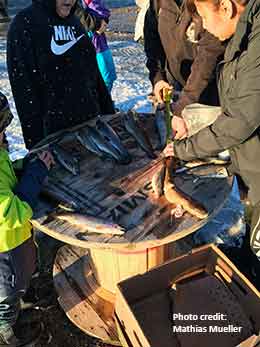When it comes to working with patients living in rural and remote areas, face-to-face instruction, education, and follow-up sessions are not always possible. That’s why many rehabilitation specialists have turned to the growing field of telehealth — using methods such as video-conferencing or information packages — to help bridge the gap and link patients in remote locations with health professionals and information.
Aligning with the Department of Physical Therapy’s social accountability mandate, Instructor and Coordinator of Clinical Education for the Northern and Rural Cohort, Robin Roots works with community partners in rural communities to expand educational opportunities, and provide much needed health services in the North. In partnership with Carrier Sekani Family Services, Robin has piloted a rehabilitation service delivery model that combines in-person community visits with telehealth follow-up. Together with an outreach primary care team of physicians, family practice residents and other health care professionals, Robin and one or two MPT students travel to remote First Nations communities and spend a week providing team-based care. Students are immersed in collaborative practice and given the opportunity to learn about, and practice, culturally safe health care.
Recognizing the role that they have in educating future health care professionals about cultural safety, community members engage students and take them ice fishing or show them other traditional practices. Upon returning to Prince George students conduct follow-up visits over telehealth from the Physiotherapy Plinth Lab. Students learn telehealth is an effective means of follow-up and are exposed to the benefits of electronic charting as a means to improve team based care when professionals are not co-located. This initiative brings much needed services to First Nations communities who suffer a disproportionate burden of disease and face numerous barriers to accessing rehabilitation services.
